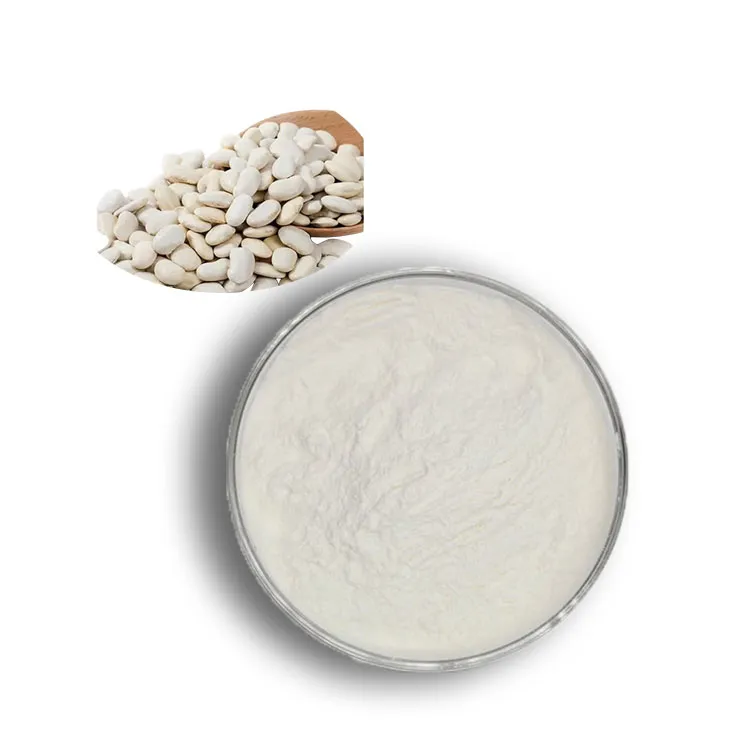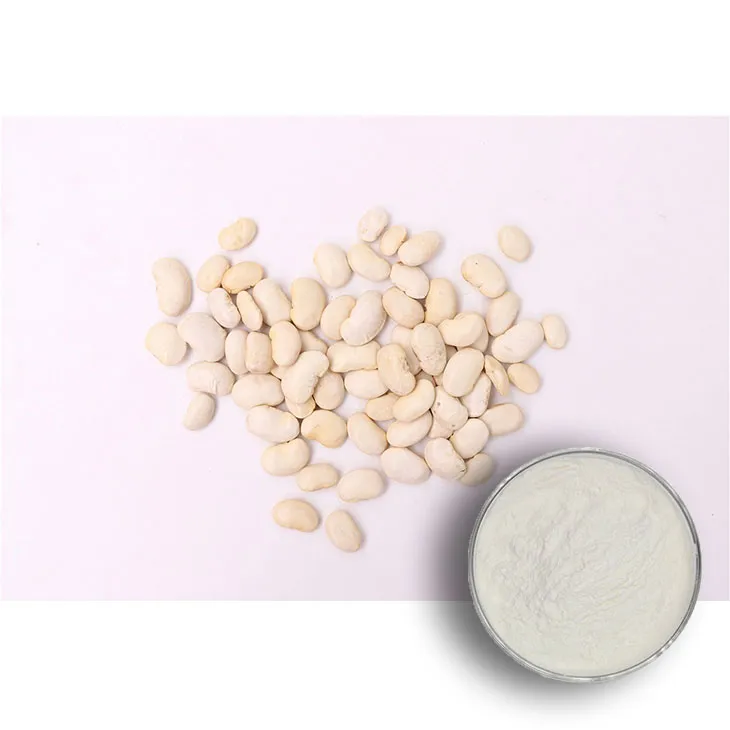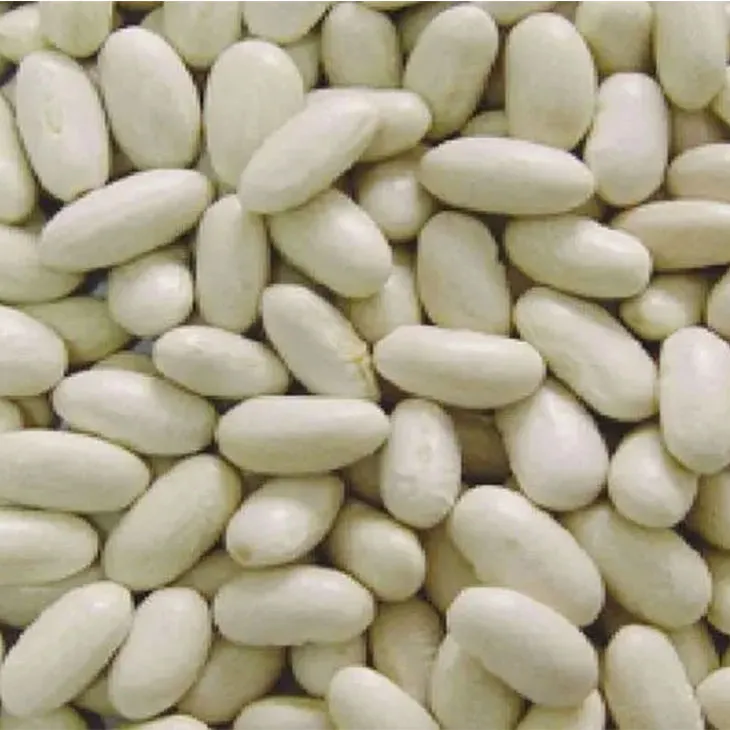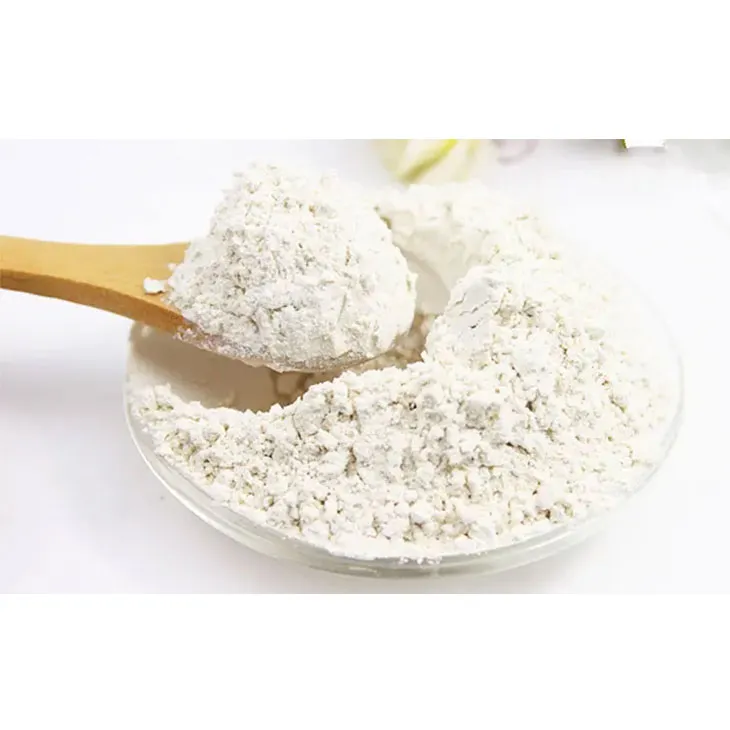- 0086-571-85302990
- sales@greenskybio.com
Kidney bean extract can reduce high blood pressure.
2024-11-14

1. Introduction
High blood pressure, or hypertension, is a widespread health concern affecting a large portion of the global population. It is a major risk factor for various cardiovascular diseases, including heart attacks, strokes, and heart failure. As a result, there has been extensive research into finding effective ways to manage and reduce high blood pressure. One such area of interest is the potential role of Kidney Bean Extract. Kidney beans, a common staple in many diets, have been found to possess certain properties that may be beneficial in combating hypertension. This article will explore in detail the mechanisms through which Kidney Bean Extract can reduce high blood pressure, making it a promising option for those looking to manage this condition.

2. The Renin - Angiotensin - Aldosterone System (RAAS) and Hypertension
The RAAS is a complex hormonal system that plays a crucial role in regulating blood pressure. When blood pressure drops or the body senses a decrease in blood volume, the kidneys release an enzyme called renin. Renin acts on a protein called angiotensinogen, which is produced by the liver, to convert it into angiotensin I. Angiotensin - converting enzyme (ACE) then further converts angiotensin I into angiotensin II. Angiotensin II is a potent vasoconstrictor, meaning it narrows the blood vessels, which in turn increases blood pressure. Additionally, angiotensin II stimulates the release of aldosterone from the adrenal glands. Aldosterone promotes sodium and water retention in the kidneys, further increasing blood volume and blood pressure.
In many cases of hypertension, the RAAS is over - activated. This can be due to various factors such as genetic predisposition, lifestyle factors (e.g., high - salt diet, obesity), or certain medical conditions. Drugs that target the RAAS, such as ACE inhibitors and angiotensin receptor blockers (ARBs), are commonly used to treat hypertension. However, natural substances like Kidney Bean Extract may also have an impact on this system.

3. Kidney Bean Extract and the RAAS
3.1 Inhibition of Renin Release
Studies have suggested that kidney bean extract may have an inhibitory effect on renin release from the kidneys. By reducing the amount of renin in the bloodstream, the cascade of events in the RAAS can be disrupted. Less renin means less angiotensin I production, which ultimately leads to a decrease in the formation of angiotensin II. This reduction in angiotensin II levels results in less vasoconstriction of the blood vessels, thereby helping to lower blood pressure.
3.2 ACE Inhibition
Some components in kidney bean extract may also act as ACE inhibitors. As mentioned earlier, ACE is responsible for converting angiotensin I to angiotensin II. By inhibiting ACE, kidney bean extract can prevent the formation of angiotensin II. This mechanism is similar to that of pharmaceutical ACE inhibitors, which are widely used in the treatment of hypertension. The inhibition of ACE by kidney bean extract can lead to relaxation of the blood vessels, allowing for easier blood flow and a subsequent reduction in blood pressure.

4. Endothelial Function and Hypertension
The endothelium is the inner lining of blood vessels. It plays a vital role in maintaining vascular homeostasis. In a healthy state, the endothelium releases substances such as nitric oxide (NO). Nitric oxide is a powerful vasodilator, which means it causes the blood vessels to relax and widen. This helps in regulating blood pressure and ensuring proper blood flow to various organs.
In hypertension, endothelial function is often impaired. There are several factors that can contribute to this impairment, including oxidative stress, inflammation, and high levels of circulating lipids. When endothelial function is compromised, the production and release of nitric oxide are reduced. This leads to a decrease in vasodilation and an increase in vasoconstriction, ultimately resulting in elevated blood pressure.

5. Kidney Bean Extract and Endothelial Function
5.1 Antioxidant Properties
Kidney bean extract contains various antioxidants. These antioxidants can help combat oxidative stress, which is one of the main factors contributing to endothelial dysfunction in hypertension. Oxidative stress occurs when there is an imbalance between the production of reactive oxygen species (ROS) and the body's antioxidant defense mechanisms. ROS can damage the endothelial cells, impairing their ability to produce nitric oxide.
By scavenging ROS, the antioxidants in kidney bean extract can protect the endothelial cells from damage. This, in turn, helps to maintain the normal function of the endothelium, allowing for the proper production and release of nitric oxide. As a result, the blood vessels can dilate more effectively, contributing to a reduction in blood pressure.
5.2 Anti - Inflammatory Effects
Inflammation also plays a significant role in endothelial dysfunction. Kidney bean extract has been shown to possess anti - inflammatory properties. It can reduce the levels of inflammatory markers in the body, such as cytokines. By reducing inflammation, kidney bean extract can help improve endothelial function.
When inflammation is reduced, the endothelial cells can function more optimally. This means that they can better produce and release nitric oxide, leading to improved vasodilation and a decrease in blood pressure.
6. Other Potential Mechanisms
- Diuretic Effect: Kidney bean extract may have a diuretic effect, which means it can increase the excretion of water and sodium from the body. This is similar to the action of some diuretic drugs used in the treatment of hypertension. By increasing the excretion of water and sodium, the blood volume is reduced, which in turn can lower blood pressure.
- Effect on Blood Lipids: Some studies suggest that kidney bean extract may also have an impact on blood lipid levels. High levels of lipids, such as cholesterol and triglycerides, are associated with an increased risk of hypertension. By improving lipid profiles, kidney bean extract may indirectly contribute to the reduction of blood pressure.
7. Research and Evidence
There have been several pre - clinical and clinical studies investigating the effects of kidney bean extract on high blood pressure. In pre - clinical studies, using animal models of hypertension, kidney bean extract has shown promising results in reducing blood pressure. These studies have demonstrated the various mechanisms discussed above, such as the impact on the RAAS and endothelial function.
In clinical trials, although the data is still limited, some studies have reported a significant reduction in blood pressure in patients who have consumed kidney bean extract. However, more large - scale, well - designed clinical trials are needed to confirm these findings and to determine the optimal dosage and duration of treatment.
8. Safety and Considerations
Generally, kidney bean extract is considered safe for consumption. However, as with any supplement, there may be some potential side effects. Some individuals may experience gastrointestinal discomfort, such as bloating or diarrhea, after consuming kidney bean extract. It is also important to note that kidney bean extract should not be used as a substitute for medical treatment in patients with severe hypertension.
Pregnant or breastfeeding women should consult their healthcare provider before using kidney bean extract, as there is limited research on its safety in these populations. Additionally, individuals with underlying medical conditions or those taking medications should also seek medical advice before starting kidney bean extract supplementation, as there may be potential interactions.
9. Conclusion
In conclusion, kidney bean extract shows great potential as an aid in reducing high blood pressure. Its multiple mechanisms of action, including its effects on the RAAS, endothelial function, and other potential pathways, make it an interesting area of research. While the current evidence from pre - clinical and clinical studies is promising, more research is needed to fully understand its efficacy and safety. If further studies confirm its benefits, kidney bean extract could potentially be used as a complementary approach in the management of hypertension, along with lifestyle modifications and existing medical treatments.
FAQ:
1. What is kidney bean extract?
Kidney bean extract is a substance derived from kidney beans. It contains various bioactive compounds that may have beneficial effects on health, including potential effects on reducing high blood pressure.
2. How does kidney bean extract influence the renin - angiotensin - aldosterone system to reduce blood pressure?
The renin - angiotensin - aldosterone system plays a crucial role in blood pressure regulation. Kidney bean extract may interfere with this system by inhibiting certain enzymes or receptors involved. For example, it might reduce the production or activity of angiotensin - converting enzyme (ACE), which is responsible for converting angiotensin I to angiotensin II. Angiotensin II is a potent vasoconstrictor, so by reducing its formation, blood vessels can relax, leading to a decrease in blood pressure.
3. What is the significance of improving endothelial function in relation to reducing high blood pressure?
The endothelium is the inner lining of blood vessels. When endothelial function is impaired, it can lead to problems such as reduced production of nitric oxide. Nitric oxide is a vasodilator that helps keep blood vessels relaxed. Kidney bean extract may improve endothelial function by promoting the production of nitric oxide or by reducing oxidative stress and inflammation in the endothelium. This in turn helps to widen blood vessels and lower blood pressure.
4. Is kidney bean extract safe for everyone to use for reducing high blood pressure?
While kidney bean extract may have potential benefits for reducing blood pressure, it may not be suitable for everyone. Some people may be allergic to kidney beans or components in the extract. Also, it should be used with caution in people with certain medical conditions or those taking other medications, as there could be potential interactions. It is always advisable to consult a healthcare provider before starting to use kidney bean extract for blood pressure control.
5. How much kidney bean extract should be taken to effectively reduce high blood pressure?
The optimal dosage of kidney bean extract for reducing high blood pressure has not been firmly established. It can vary depending on factors such as the individual's overall health, the severity of their high blood pressure, and other medications or supplements they may be taking. Research is still ongoing in this area, and it is important not to self - prescribe high doses without medical advice.
Related literature
- The Effects of Kidney Bean Extract on Blood Pressure: A Comprehensive Review"
- "Kidney Bean Extract and Hypertension: Mechanisms and Potential Applications"
- "Investigating the Role of Kidney Bean Extract in Renin - Angiotensin - Aldosterone System Modulation for Blood Pressure Control"
- ▶ Hesperidin
- ▶ Citrus Bioflavonoids
- ▶ Plant Extract
- ▶ lycopene
- ▶ Diosmin
- ▶ Grape seed extract
- ▶ Sea buckthorn Juice Powder
- ▶ Fruit Juice Powder
- ▶ Hops Extract
- ▶ Artichoke Extract
- ▶ Mushroom extract
- ▶ Astaxanthin
- ▶ Green Tea Extract
- ▶ Curcumin
- ▶ Horse Chestnut Extract
- ▶ Other Product
- ▶ Boswellia Serrata Extract
- ▶ Resveratrol
- ▶ Marigold Extract
- ▶ Grape Leaf Extract
- ▶ New Product
- ▶ Aminolevulinic acid
- ▶ Cranberry Extract
- ▶ Red Yeast Rice
- ▶ Red Wine Extract
-
Natural grape seed extract
2024-11-14
-
Maca Extract
2024-11-14
-
Green coffee bean Extract
2024-11-14
-
Green Tea Extract
2024-11-14
-
melatonin extract
2024-11-14
-
Lily extract
2024-11-14
-
Moringa powder
2024-11-14
-
Berberis aristata Extract
2024-11-14
-
Hops Extract
2024-11-14
-
Polygonum Cuspidatum Extract
2024-11-14





















